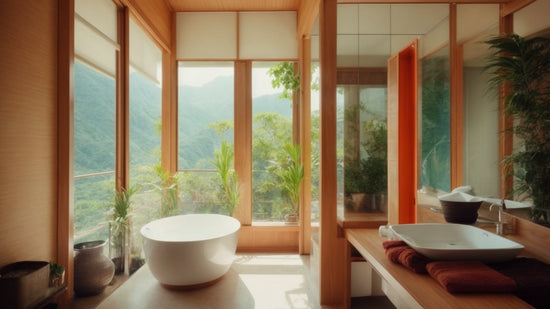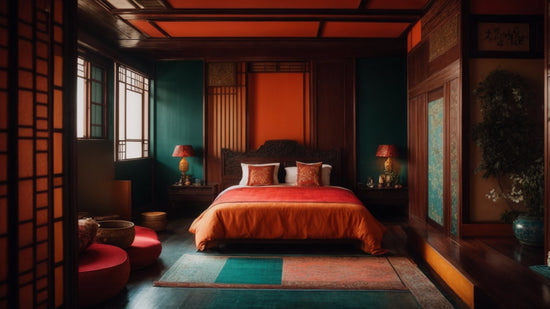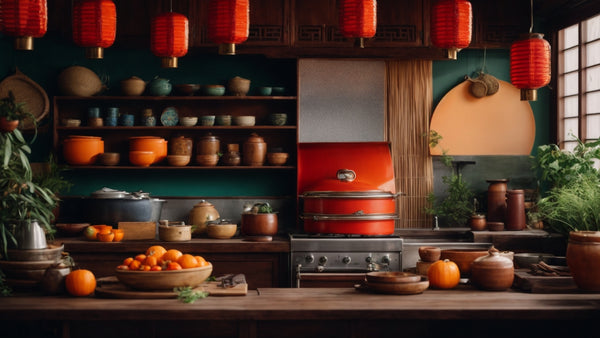Maximize Your Home's Potential: Decor Tips for Every Room

Table of content
1. Introduction 2. Assessing Your Space 3. Setting Clear Goals 4. Creating a Budget 5. Researching Decor Styles 6. Selecting a Color Palette 7. Assessing Furniture Needs 8. Enhancing Lighting Solutions 9. Incorporating Textures and Patterns 10. Utilizing Wall Space 11. Maximizing Storage Solutions 12. Creating Focal Points 13. Incorporating Personal Touches 14. Infusing Greenery and Natural Elements 15. Maintaining Balance and Harmony 16. Embracing Minimalism 17. Conclusion
1. Introduction
Introduction:
- Are you looking to elevate the look and feel of your home?
- Do you want to make the most of every room in your house?
- Are you seeking practical and stylish decor solutions?
2. Assessing Your Space
Assessing Your Space:
- Take a comprehensive look at each room in your home.
- Identify areas that need improvement or updating.
- Consider the size, layout, and existing decor of each space.
3. Setting Clear Goals
Setting Clear Goals:
- What are your priorities for each room?
- Are you focused on functionality, aesthetics, or both?
- Do you have a specific budget and timeline in mind?
4. Creating a Budget
Creating a Budget:
- Decide how much you're willing to spend on each room.
- Allocate funds for essential items versus decorative accessories.
- Explore cost-effective alternatives for high-ticket items.
5. Researching Decor Styles
Researching Decor Styles:
- What design styles appeal to you?
- Are you drawn to modern, traditional, or eclectic decor?
- Explore various sources of inspiration, from magazines to online platforms like Pinterest.
6. Selecting a Color Palette
Selecting a Color Palette:
- Choose a cohesive color scheme for each room.
- Consider the mood and atmosphere you want to create.
- Experiment with different combinations of hues, tones, and accents.
7. Assessing Furniture Needs
Assessing Furniture Needs:
- Do you need to replace any existing furniture?
- Are there pieces you can repurpose or refurbish?
- Measure your space to ensure furniture fits proportionally.
8. Enhancing Lighting Solutions
Enhancing Lighting Solutions:
- Evaluate the natural light available in each room.
- Supplement with overhead fixtures, task lighting, and accent lamps.
- Consider energy-efficient options like LED bulbs.
9. Incorporating Textures and Patterns
Incorporating Textures and Patterns:
- Experiment with textiles, such as rugs, curtains, and throw pillows.
- Balance different textures, from smooth to rough and matte to shiny.
- Introduce patterns sparingly for visual interest.
10. Utilizing Wall Space
Utilizing Wall Space:
- Hang artwork, mirrors, or wall sculptures to add personality.
- Install floating shelves or display ledges for additional storage.
- Consider removable wallpaper or decals for a temporary pop of color.
11. Maximizing Storage Solutions
Maximizing Storage Solutions:
- Invest in multi-functional furniture with built-in storage.
- Use decorative baskets, bins, or boxes to organize clutter.
- Optimize closet space with organizers and dividers.
12. Creating Focal Points
Creating Focal Points:
- Select a standout feature for each room, such as a fireplace or statement wall.
- Arrange furniture and decor around the focal point to draw attention.
- Highlight architectural details like crown molding or exposed beams.
13. Incorporating Personal Touches
Incorporating Personal Touches:
- Display cherished items like family photos or heirlooms.
- DIY artwork or crafts to showcase your creativity.
- Integrate elements that reflect your hobbies, interests, or travels.
14. Infusing Greenery and Natural Elements
Infusing Greenery and Natural Elements:
- Introduce houseplants or fresh flowers to purify the air and add life to your space.
- Incorporate natural materials like wood, stone, or bamboo for a warm, organic feel.
- Place indoor/outdoor rugs or mats to connect indoor spaces with the outdoors.
15. Maintaining Balance and Harmony
Maintaining Balance and Harmony:
- Ensure visual equilibrium by distributing elements evenly throughout the room.
- Avoid overcrowding or cluttering spaces with too many decorations.
- Use the principles of symmetry, scale, and proportion to achieve a cohesive look.
16. Embracing Minimalism
Embracing Minimalism:
- Simplify your decor by decluttering and removing unnecessary items.
- Focus on quality over quantity when selecting furnishings and accessories.
- Create open, airy spaces that promote relaxation and tranquility.
17. Conclusion
Conclusion:
- By following these home decor tips, you can elevate the style and functionality of every room in your home.
- Remember to personalize your space and make it reflect your unique personality and lifestyle.
- With careful planning and attention to detail, you can create a home that is both beautiful and practical.



